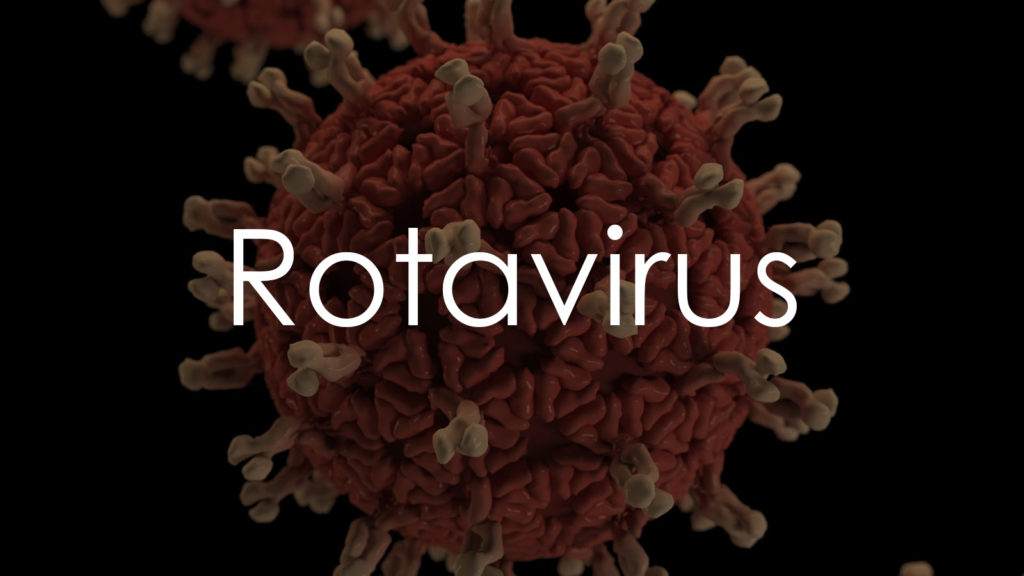Rotavirus is a highly contagious virus recognized as the leading cause of severe diarrhea and gastroenteritis in infants and young children globally. Characterized by symptoms such as watery diarrhea, vomiting, and fever, rotavirus infections can lead to significant dehydration, particularly in vulnerable age groups. This article aims to provide an in-depth look at rotavirus, including its transmission, typical symptoms, diagnostic approaches, treatment methods, and crucial preventive measures. Understanding rotavirus is vital for effective disease management and prevention, especially in settings with high risks of transmission like daycare centers and pediatric wards.

Causes
Rotavirus is a highly contagious virus that is the leading cause of severe diarrhea and gastroenteritis in infants and young children worldwide.
- Viral Nature:
- Rotavirus belongs to the Reoviridae family. It infects and damages the cells lining the small intestine, leading to gastroenteritis.
- Transmission:
- The virus is transmitted primarily via the fecal-oral route. This can occur through contaminated hands, surfaces, objects (like toys), and water or food.
- It spreads easily in settings like daycare centers and hospitals due to its highly infectious nature and the close proximity of individuals.
- Risk Factors:
- Young children, especially those between the ages of 6 months and 2 years, are most at risk.
- Lack of vaccination increases susceptibility to the virus.
- Compromised immune systems or living in or traveling to areas with poor sanitation can also heighten the risk.
Symptoms

The symptoms of rotavirus infection usually develop within two days after exposure to the virus and can vary from mild to severe.
- Gastrointestinal Symptoms:
- Watery diarrhea, often severe and can last for 3 to 8 days.
- Vomiting, which is frequently one of the first symptoms.
- Abdominal pain.
- Other Symptoms:
- Fever, which may be high.
- Loss of appetite.
- Dehydration, which is a major concern, especially in young children. Signs of dehydration include decreased urination, dry mouth and throat, and feeling dizzy when standing up.
- Severe Cases:
- Severe dehydration can lead to shock, and severe infection can require hospitalization, particularly for young infants.
- In rare cases, rotavirus infection may lead to other complications like seizures.
Recognizing the signs and symptoms of rotavirus infection early is crucial for prompt treatment, especially to address and prevent dehydration in young children.
Diagnosis
Diagnosing rotavirus infection is important for appropriate treatment and management, particularly in severe cases.
- Stool Tests:
- The most common method for diagnosing rotavirus is testing a stool sample. The test looks for rotavirus antigens and can confirm the presence of the virus.
- Physical Examination:
- A healthcare provider may perform a physical examination, focusing on signs of dehydration and abdominal discomfort.
- Medical History:
- Assessment of the patient’s medical history, including symptoms, onset, and duration, helps in making an accurate diagnosis.
Treatment
Rotavirus infection usually resolves on its own, but treatment can ease symptoms and prevent complications.
- Hydration:
- Oral Rehydration Solutions (ORS) are crucial to prevent dehydration, especially in young children. In severe cases, intravenous fluids may be required.
- Dietary Management:
- Continuing regular diet as tolerated, including breast milk or formula for infants. In some cases, a temporary lactose-free diet may be recommended.
- Medication for Symptoms:
- Medications to reduce fever and relieve pain can be used. Antiemetic drugs may help control vomiting.
- Monitoring and Care:
- Close monitoring of fluid intake and output is essential, especially for infants and young children, to ensure they stay well-hydrated.
Prevention

Preventive measures are key in reducing the incidence and spread of rotavirus.
- Vaccination:
- Rotavirus vaccines are highly effective in preventing severe rotavirus illness in infants and young children. The vaccine is part of the routine childhood immunization schedule in many countries.
- Hygiene Practices:
- Regular handwashing with soap and water, especially after changing diapers and before handling food, is crucial.
- Disinfecting contaminated surfaces and objects can help prevent the spread of the virus.
- Breastfeeding:
- Breastfeeding has been shown to reduce the severity of rotavirus infections.
- Safe Water and Food:
- Ensuring safe drinking water and proper food handling can prevent fecal-oral transmission of the virus.
By integrating effective diagnosis and symptomatic treatment with preventive strategies like vaccination and hygiene practices, the impact of rotavirus, particularly on young children, can be significantly mitigated.
Conclusion
In summary, rotavirus remains a major public health concern, primarily affecting young children and resulting in considerable healthcare challenges worldwide. The key to managing rotavirus effectively involves timely diagnosis, proper hydration and supportive care to alleviate symptoms, and most importantly, preventive measures such as vaccination. Adherence to good hygiene practices, including regular handwashing and sanitization of surfaces, plays a critical role in curbing the spread of the virus. The inclusion of rotavirus vaccination in national immunization programs has significantly reduced the incidence and severity of the disease, demonstrating the effectiveness of vaccines in controlling this common childhood illness. Ongoing public health efforts and continued research are essential in further reducing the global burden of rotavirus infections.